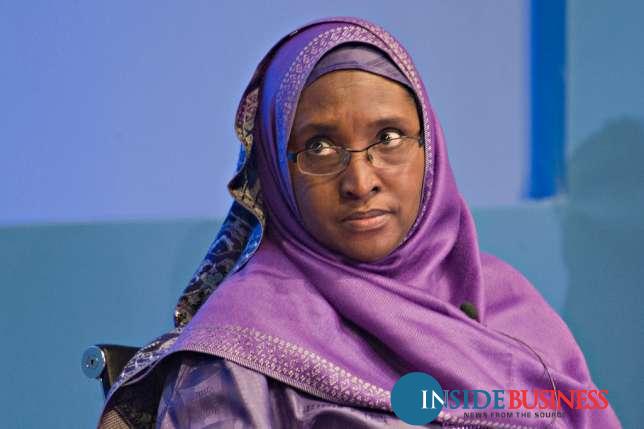FG Recovered Over N700bn From Whistleblowing – Ahmed
The Federal Government has recovered over N700 billion from whistleblowing since the launched of the policy on December 21, 2016, the Minister of Finance, Budget and National Planning, Zainab Ahmed, has revealed.
The Minister made this known on Tuesday in Abuja at the national conference on the whistleblowing policy.
The whistleblowing policy, an initiative of the former Minister of Finance, Kemi Adeosun, is an anti-corruption programme that encourages voluntary disclosure of information about fraud, bribery, looted government funds, financial misconduct, government assets and any other form of corruption or theft to Federal Ministry of Finance, Budget and National Planning.
The whistleblower, whose information leads to the recovery of stolen funds, is rewarded or entitled to 2.5% – 5% percentage from the recovered funds by the Nigeria government.
Speaking on the whistleblowing policy, Ahmed noted that there was widespread
enthusiasm as Nigerians volunteered numerous actionable information.
She added that such information or tips were usually referred for further painstaking investigation by the Economic and Financial Crimes
Commission, the Independent Corrupt and Other Related Offenses Commission, Nigeria Financial Intelligence Unit, and the Directorate of
State Service.
“As expected, there were recoveries from the cleaning of the Integrated Personnel Payroll Information System (IPPIS), stoppage of non-compliance with the Treasury Single Account (TSA) and
violations of the procurement Act 2007, etc,” she added.
The minister, however, said that challenges came after sometime, as interest in the implementation of the policy nosedived.
She said further that the government’s attempt to reawake public interest in the policy did not materialise.
“It was then that the government realized that there was apparent confusion in public mind on several issues.
“We discovered that most citizens were not aware of the existence of the policy, not to talk about its key objectives. Furthermore, the workings or operational modalities of the implementation of the policy were generally misunderstood.”
She stated that in a move to address the challenges, a committee with
representatives from anti-graft and security agencies chaired by a
representative of the Federal Ministry of Justice was set up to draft a Whistleblower Bill, taking into account all the complaints received from the public and the observations of the various stakeholders.
Ahmed added that the draft bill was subjected to a validation exercise
with stakeholders including non-state actors like MacArthrur Foundation, Afrimill and others.”
Earlier in his remarks, the Vice President, Prof. Yemi Osinbajo, assured that the Federal Government’s whistleblowing policy was developed as a tool towards the attainment of these tasks and the exposure of corruption and corrupt actors in government.
Osinbanjo stressed on the importance to end the existence of decades of mismanagement of Government resources.
He said, “Indeed, we cannot achieve the level of sustained economic growth that would propel our nation out of the economic malaise triggered, in the main, by the impact of the COVID-19 pandemic, without recognizing the existential need to put an end to decades of mismanagement of government resources.
“Although some progress has been achieved through this policy, especially at the federal level – with recoveries, prosecutions and convictions; it is essential that the policy operates widely in states and local governments as the tiers closest to the people and overseers of about half of the nation’s revenues.
“It appears that under the current policy, whistleblowing is only with respect to acts of corruption. However, there are a whole range of issues that may not endanger public finance directly but may
constitute public safety or security risks.”
The vice president said that reporting such issues may save people’s lives and or property.
He canvassed that violation of law, gross mismanagement, waste of public resources, or acts inimical to public health or safety be included in the scope of activities that whistleblowers can report to the authorities.
He noted that to overcome some of the issues in aiding more discoveries certainty and clarity of the reporting processes and adequate protection of the blowers would improve confidence in the initiative.
He added that enhanced transparency and accountability in the implementation of the policy will result in more discoveries and recoveries.
Osinbajo explained that the protection of the whistle-blower is critical.
He said, “As we reflect on the policy, we might also consider the necessity for an Act of the National Assembly to back the policy. Such a law should also provide for comprehensive protection of whistleblowers, including against reprisals from their employers and those whose activities they expose. These may include witness
protection type provisions should the whistle-blower have to appear in court.”

It would be recalled that former Permanent Secretary, Federal Ministry of Finance, Budget and National Planning, Dr. Muhammed Dikwa, had in
2019 said the Federal Government introduced the policy to fight corruption and other financial crimes, including the
violation of the Treasury Single Account, elimination of ghost workers syndrome, staff collecting double salaries in more than one organisation, and retirees without proper records but still
collecting.
Dikwa, who spoke at a workshop in Abuja, had recoveries were made of salary from retired diplomats for almost two years to the tune of N192 million, non-remittances by ministries,
departments and agencies.


Comments are closed.